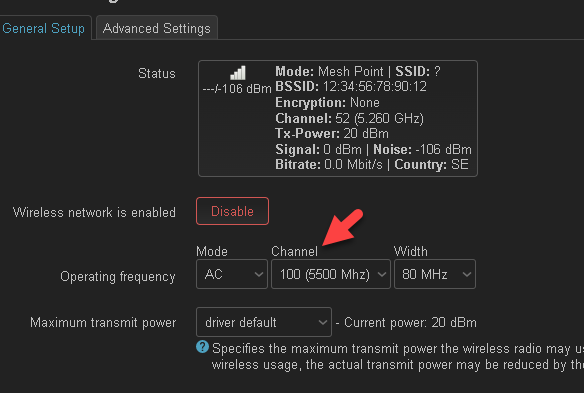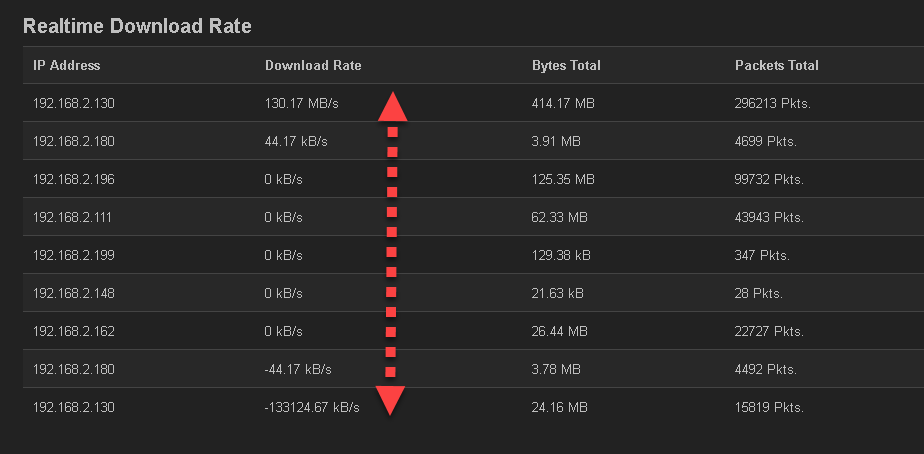what command were you executing ?
This one, which was part of my command list last time.
make V=sc -j$(($(nproc)+1)) download
this command only downloads all required source packages to build but doesn't actually build anything.
you need to issue this command afterwards: make V=sc -j$(($(nproc)+1))
Yes, I was going to as soon as it was finished but it never finalized and just gets stuck on the last item in the log.
If I abort it this is what I get:
time: package/kernel/linux/download#2.14#0.21#2.40
^Cmake[2]: *** [Makefile:52: /home/ubuntu/openwrt/dl/QCA9887-firmware-2-ct-full-community-22.bin.lede.022] Interrupt
time: package/firmware/ath10k-ct-firmware/download#0.28#0.16#2503.98
make: *** [/home/ubuntu/openwrt/include/toplevel.mk:202: download] Interrupt
Is it possible to manually download the QCA9887-firmware-2-ct-full-community-22.bin.lede.022 package and put it in the dl directory?
ah ok, hmm, maybe servers are down temporarily, tried to wait a bit, maybe it will succeed after after a while ?
Downloaded it manually from here https://openwrt.cc/dl/openwrt/openwrt/ and put the package in the dl folder. Thanks
Edit: Very strange.
Now that the file is in the dl folder it actually started to download the files... weird.
I am running a build from a clone done in October, I believe my build should contain the switch config changes.
Thanks for your reply😊
Yeah, got stuck again. The download is going far too slow.
Does anyone happen to have this package?
firmware-2-ct-full-htt-mgt-community-22.bin.lede.022
It is being downloaded from here but the speed is sub 1KB/s.
https://www.candelatech.com/downloads/ath10k-10-4b/firmware-5-ct-full-community-12.bin-lede.022
Edit: Nevermind, I sorted it.
Not sure what you try to achieve or what doesn't work but check the physical switch configuration again:
Master switch:
- P0: CPU ETH1
- P1: LAN2
- P2: LAN1
- P3: WAN
- P4: connected to slave's P5
- P5: CPU ETH2
- P6: connected to slave's P0
Slave switch:
- P0: connected to master's P6
- P1: LAN6
- P2: LAN5
- P3: LAN4
- P4: LAN3
- P5: connected to master's P4
- P6: -
Ports P4 and P6 of the master switch are connected with ports P5 and P0
of the slave switch, respectively. These ports are set up into trunks:
- P4 and P6 into TRUNK1 on the master switch
- P5 and P0 into TRUNK0 on the slave switch
If you want to have multiple VLANs on slave's switch then you probably should tag trunk ports connecting slave (P0 + P5) and master (P4 + P6) switches because the default configuration assumes that there is only one fixed VLAN on slave switch and therefore no tagged frames are used.
Thanks a bunch @egorenar, now I should be able to configure VLANs on the slave switch.
New builds, they contain MWAN3, OpenVPN, QoS over NFT and all dependencies.
https://www.dropbox.com/s/zf71y4hbryxwrdf/openwrt-alpine-generic-netgear_r9000-squashfs-factory.img?dl=0
https://www.dropbox.com/s/cya4i2z0qmu23p2/openwrt-alpine-generic-netgear_r9000-squashfs-sysupgrade.bin?dl=0
Please note, this does not have Luci so you need to run this if you want it (I tested this and it works with the above build):
opkg update
opkg install luci
The only issue I still have is with the Real Time Rate, it still does not work at all.
I just checked using R9000, the SFP+ (eth0) port works in my case.
Although I cannot confirm the link speed but the port works using SFP+ DAC to my Netgear multigig switch
Link speed is actually 10G
Settings for eth0:
Supported ports: [ ]
Supported link modes: Not reported
Supported pause frame use: No
Supports auto-negotiation: No
Supported FEC modes: Not reported
Advertised link modes: Not reported
Advertised pause frame use: No
Advertised auto-negotiation: No
Advertised FEC modes: Not reported
Speed: 10000Mb/s
Duplex: Full
Port: Twisted Pair
PHYAD: 0
Transceiver: internal
Auto-negotiation: on
MDI-X: Unknown
Supports Wake-on: umb
Wake-on: d
Link detected: yes
 it works ? how is the speed ? would be nice to have some tests with iperf maybe
it works ? how is the speed ? would be nice to have some tests with iperf maybe
I hooked up the R9000 SFP+ port (trunking 3 VLANS) via a DAC cable to my core switch and briefly tested internet access via an AP connected to the core switch. The speed on all VLANs seem to be similar to what was obtainable when the LAN1 was configured as trunk.
I'll do iperf tests and come back here with results as soon as I'm able to hookup the R9000 SFP+ port to my home server via 10GB SFP+ DAC.
Question:
(I know I should probably post this in another, more general topic, but I want to use the momentum we have here on the R9000 build)
If I wanted to add a new package, how exactly should I proceed?
There is a lot of information in the official documentation but I wondered if someone on this topic knows how to quickly get a reasonably well maintained package like this one:
and incorporate it in the current build.
I want to attach a zoned storage device to my router, and test functionality.
Apparently, the 10GBE SFP+ port cannot really do 10G with the included drivers.
##R9000 10GBE SFP cage
Settings for eth0.100:
Supported ports: [ ]
Supported link modes: Not reported
Supported pause frame use: No
Supports auto-negotiation: No
Supported FEC modes: Not reported
Advertised link modes: Not reported
Advertised pause frame use: No
Advertised auto-negotiation: No
Advertised FEC modes: Not reported
Speed: 10000Mb/s
Duplex: Full
Port: Twisted Pair
PHYAD: 0
Transceiver: internal
Auto-negotiation: on
MDI-X: Unknown
Link detected: yes
##Ubuntu Server: Mellanox connectx-2 10GBE NIC
Settings for eth0:
Supported ports: [ ]
Supported link modes: Not reported
Supported pause frame use: No
Supports auto-negotiation: No
Supported FEC modes: Not reported
Advertised link modes: Not reported
Advertised pause frame use: No
Advertised auto-negotiation: No
Advertised FEC modes: Not reported
Speed: 10000Mb/s
Duplex: Full
Port: Twisted Pair
PHYAD: 0
Transceiver: internal
Auto-negotiation: off
MDI-X: Unknown
Link detected: yes
##R9000 OpenWrt
xyz@OpenWrt:~# iperf3 -c x.x.x.100
Connecting to host x.x.x.100, port 5201
[ 5] local x.x.x.1 port nnnnn connected to x.x.x.100 port 5201
[ ID] Interval Transfer Bitrate Retr Cwnd
[ 5] 0.00-1.00 sec 225 MBytes 1.88 Gbits/sec 0 173 KBytes
[ 5] 1.00-2.01 sec 221 MBytes 1.85 Gbits/sec 0 173 KBytes
[ 5] 2.01-3.00 sec 215 MBytes 1.81 Gbits/sec 0 173 KBytes
[ 5] 3.00-4.00 sec 216 MBytes 1.81 Gbits/sec 0 212 KBytes
[ 5] 4.00-5.01 sec 219 MBytes 1.83 Gbits/sec 30 163 KBytes
[ 5] 5.01-6.01 sec 220 MBytes 1.85 Gbits/sec 0 163 KBytes
[ 5] 6.01-7.00 sec 216 MBytes 1.82 Gbits/sec 0 163 KBytes
[ 5] 7.00-8.00 sec 214 MBytes 1.79 Gbits/sec 0 163 KBytes
[ 5] 8.00-9.00 sec 220 MBytes 1.85 Gbits/sec 0 163 KBytes
[ 5] 9.00-10.00 sec 218 MBytes 1.83 Gbits/sec 0 174 KBytes
- - - - - - - - - - - - - - - - - - - - - - - - -
[ ID] Interval Transfer Bitrate Retr
[ 5] 0.00-10.00 sec 2.13 GBytes 1.83 Gbits/sec 30 sender
[ 5] 0.00-10.00 sec 2.13 GBytes 1.83 Gbits/sec receiver
R9000 SFP+ port was connected to [Ubuntu server using a DAC cable] which has been tested and delivered 10BGE in the past.
Could the R9000 CPU be the bottleneck?
Scaredy cat is back again  Before I try to figure out how to install the custom firmware...
Before I try to figure out how to install the custom firmware...
Will it have these 2 options too?
- Enable 160 MHz bandwidth in the 5 GHz band
- Disable 20/40 MHz Coexistence
Yes, I'm that kind of person  Appreciated!
Appreciated!
Note to self: https://openwrt.org/docs/guide-user/luci/luci.essentials
Got an interesting one for you.
I am messing around with 802.11s and while trying to get the mesh to work with wired and unwired nodes (doesnt seem to work) I found an interesting issue.
Now, im not sure this has anything to do with the drivers selected or not, but here it goes.
Thu Jan 6 10:38:49 2022 daemon.err hostapd: Line 6: Invalid country_code '00'
Thu Jan 6 10:38:49 2022 daemon.err hostapd: Cannot enable IEEE 802.11d without setting the country_code
Thu Jan 6 10:38:49 2022 daemon.err hostapd: 2 errors found in configuration file '/var/run/hostapd-phy2.conf'
Thu Jan 6 10:38:49 2022 daemon.err hostapd: Failed to set up interface with /var/run/hostapd-phy2.conf
Basically it does not support World as country while configuring the Advanced settings for the 2.4ghz network. I have not yet tried the 5ghz network but I will soon.
This might be the way it works but I thought that it also might be an issue.
As an update on 802.11s.
Seems like it fails on 5ghz network and the reason seems to be something with the band selection.
Fri Jan 7 13:05:58 2022 kern.warn kernel: [ 212.323648] ath10k_pci 0001:03:00.0: 10.4 wmi init: vdevs: 16 peers: 48 tid: 96
Fri Jan 7 13:05:58 2022 kern.warn kernel: [ 212.331122] ath10k_pci 0001:03:00.0: msdu-desc: 2500 skid: 32
Fri Jan 7 13:05:58 2022 kern.info kernel: [ 212.412015] ath10k_pci 0001:03:00.0: wmi print 'P 48/48 V 16 K 144 PH 176 T 186 msdu-desc: 2500 sw-crypt: 0 ct-sta: 0'
Fri Jan 7 13:05:58 2022 kern.info kernel: [ 212.422924] ath10k_pci 0001:03:00.0: wmi print 'free: 84920 iram: 13156 sram: 11224'
Fri Jan 7 13:05:59 2022 kern.info kernel: [ 212.802482] ath10k_pci 0001:03:00.0: rts threshold -1
Fri Jan 7 13:05:59 2022 kern.warn kernel: [ 212.807755] ath10k_pci 0001:03:00.0: Firmware lacks feature flag indicating a retry limit of > 2 is OK, requested limit: 4
Fri Jan 7 13:05:59 2022 kern.info kernel: [ 212.820271] br-lan: port 3(wlan1-1) entered blocking state
Fri Jan 7 13:05:59 2022 kern.info kernel: [ 212.825766] br-lan: port 3(wlan1-1) entered disabled state
Fri Jan 7 13:05:59 2022 kern.info kernel: [ 212.831387] device wlan1-1 entered promiscuous mode
Fri Jan 7 13:05:59 2022 daemon.notice hostapd: wlan1-1: interface state UNINITIALIZED->COUNTRY_UPDATE
Fri Jan 7 13:05:59 2022 **daemon.err hostapd: could not get valid channel**
Fri Jan 7 13:05:59 2022 daemon.notice hostapd: wlan1-1: interface state COUNTRY_UPDATE->DFS
Fri Jan 7 13:06:00 2022 kern.info kernel: [ 213.878714] ath10k_pci 0001:03:00.0: rts threshold -1
Fri Jan 7 13:06:00 2022 daemon.notice netifd: radio1 (13649): command failed: Link has been severed (-67)
Fri Jan 7 13:06:00 2022 daemon.notice netifd: radio1 (13649): command failed: Link has been severed (-67)
Fri Jan 7 13:06:00 2022 daemon.notice netifd: Wireless device 'radio1' is now up
Fri Jan 7 13:06:00 2022 kern.info kernel: [ 213.964798] br-lan: port 4(wlan1) entered blocking state
Fri Jan 7 13:06:00 2022 kern.info kernel: [ 213.970106] br-lan: port 4(wlan1) entered disabled state
Fri Jan 7 13:06:00 2022 kern.info kernel: [ 213.975888] device wlan1 entered promiscuous mode
Configured band is 100.

Edit: Do not try to update the drivers from any official repo. Wifi will stop working.
The only way I have been able to get it working is by rebooting and crossing my fingers.
Edit 2: When restarting any client in the network (I have 5 stations) then the R9000 drops the entire mesh and doesn't reconnect anything until I issue a reboot.
Not sure if this is a driver issue or something else.
Perhaps this is the cause?
Fri Jan 7 16:20:01 2022 kern.warn kernel: [ 758.999993] ath10k_pci 0001:04:00.0: Invalid VHT mcs 15 peer stats
Edit 3: This isnt working. 802.11s might be supported but its not stable in any way. Randomly disconnects and doesnt reconnect until reboot, which is a pain when the R9000 is the main router and the mesh no longer has access to it.
I am going back to wired.


